Interview: THE NICETIES playwright Eleanor Burgess Mining History To Facilitate Truthful Plays
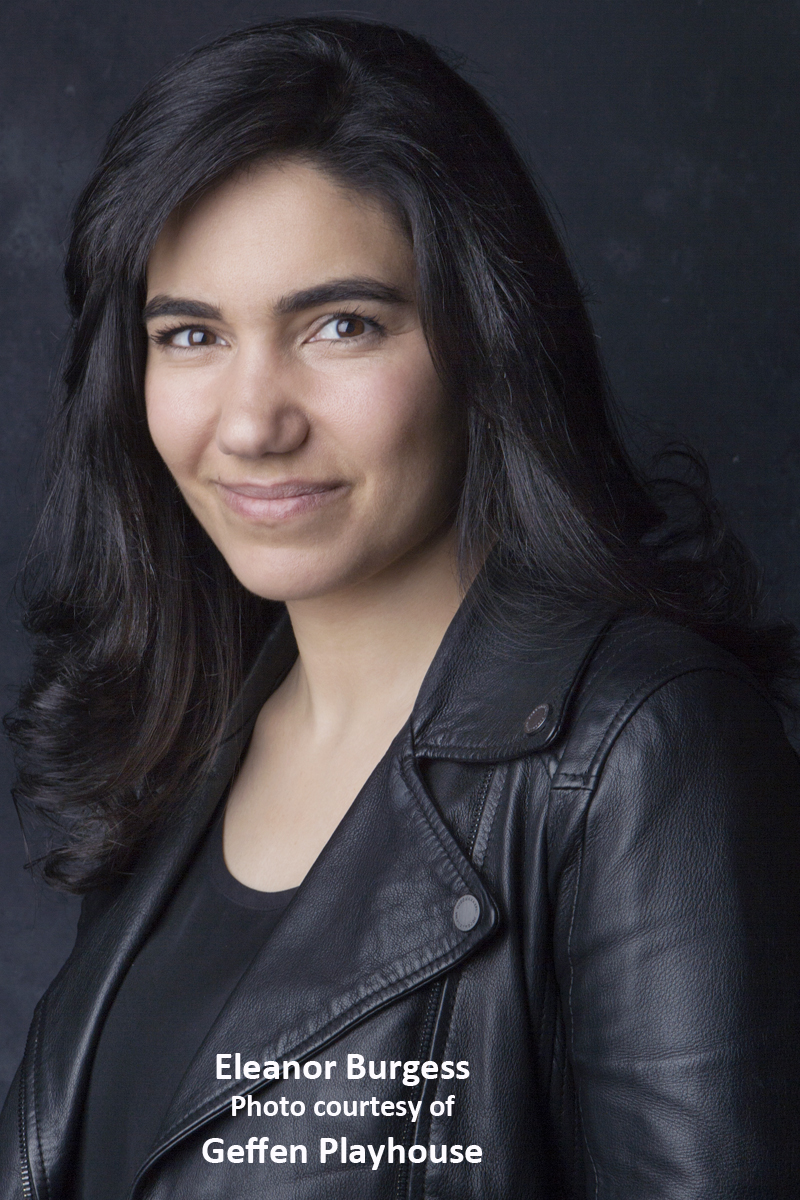
Playwright Eleanor Burgess' latest work THE NICETIES receives its west coast premiere at The Geffen Playhouse beginning April 9, 2019. THE NICETIES charts the escalating series of calm-to-volatile discourses between a university college professor and her brilliant student on history, race and reputation. Eleanor, a Huntington Playwright Fellow, carved out some time to answer a few of my inquisitive inquiries on her writing processes, while touching on some of her professional milestones.
Thank you for taking the time for this interview, Eleanor!
What initially sparked the origins of THE NICETIES?
THE NICETIES was originally inspired by an incident that happened at Yale in the fall of 2015 (the "Halloween costume controversy"), and the conversations and arguments that cropped up in its wake. I became obsessed with how dysfunctional those conversations were-with how deep the divisions in this seemingly unified community really ran. I didn't know what to think, and when I don't know what to think, I start writing to try to find out.
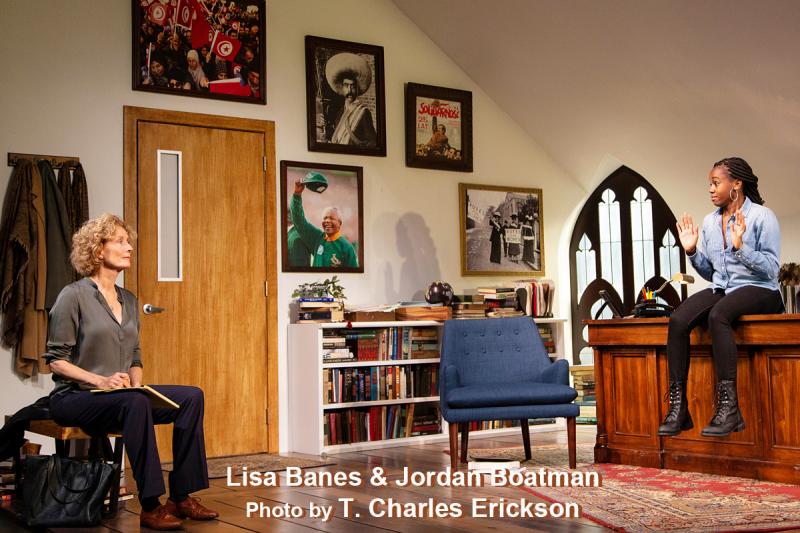 Did you have to brush up on your American history to write NICETIES? Or were you already up on your historical facts?
Did you have to brush up on your American history to write NICETIES? Or were you already up on your historical facts?
I actually used to be a high school history teacher, including teaching APUSH (Advanced Placement United States History), so a lot of the big themes and ideas were very intuitive and familiar for me. But the specific details that the characters reference took a lot of research. There's a shelf in my bookcase that's all NICETIES-related.
Is there an underlying theme that runs through your work on various subjects (CHILL, START DOWN, THESE DYING GENERATIONS, MOCHA, SPARKS FLY UPWARD)?
I mentioned my background in history. I think I tend to be fascinated by the interaction between individuals and grand world-historical forces. The year when we're born shapes so much about our lives in ways that we can't quite grasp or control. I'm interested in the ways we try to change and shape the world even as the world much more powerfully changes and shapes us.
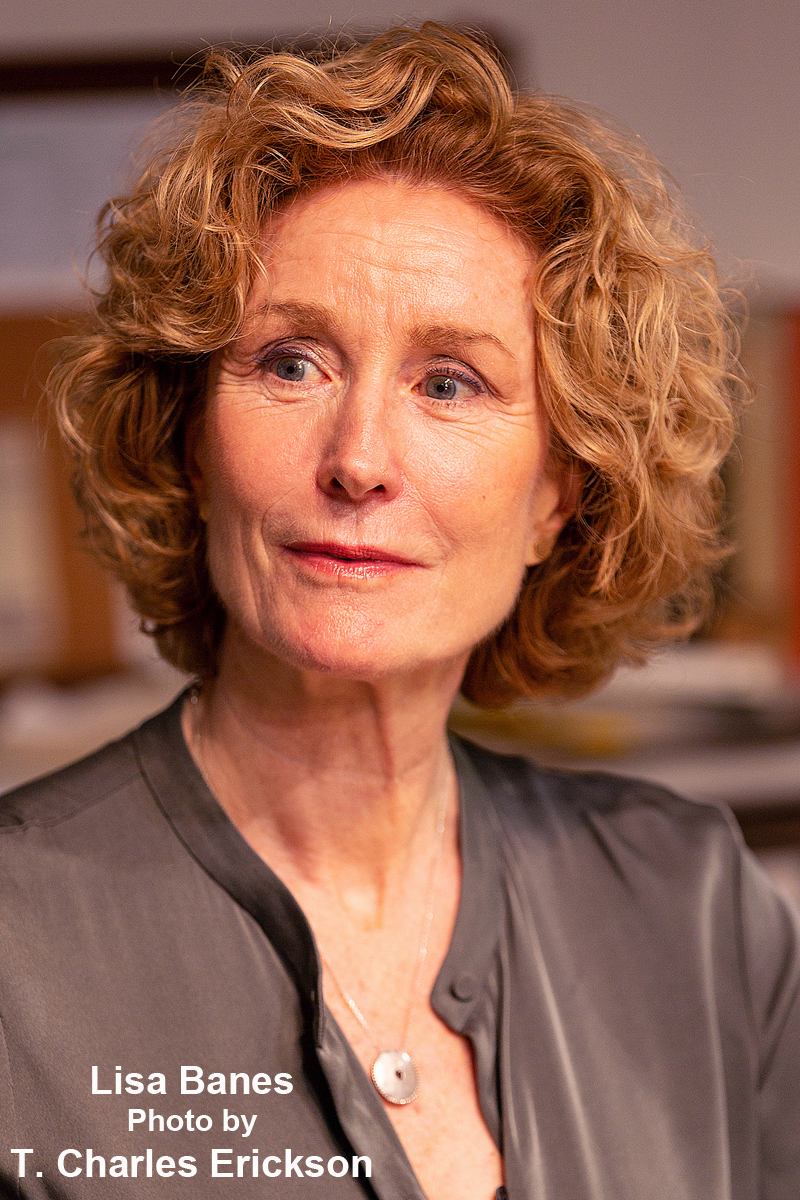 Do you strive to start conversations with your plays? Or persuade towards one point of view over another?
Do you strive to start conversations with your plays? Or persuade towards one point of view over another?
Part of what draws me to theatre as a medium is its capacity to put forward multiple different, conflicting truths. Theatre isn't (usually) told through one person's perspective - different perspectives live, simultaneously, with equal weight, onstage - and the ultimate truth hovers somewhere above or between the characters, as something for the audience to piece together or figure out. Many times when I see a show that seems to be trying to hammer home a particular point, I get frustrated because I can see the play cheapening, shortchanging, or over-simplifying conflicting points of view. Life is very complicated, so I try to let that complexity live onstage. Hopefully, my plays are a jumping-off point for the audience to engage with very deep questions and reach their own conclusions.
You have received commissions, fellowships and awards. What was your first writing recognition and what was your reaction to it? Was it the Huntington Playwriting Fellowship?
Yes! The Huntington Playwriting Fellowship was the first time a professional theatre recognized and encouraged my work. It felt particularly thrilling because I grew up seeing shows at the Huntington. Yet to be honest I think I was still so early in my career that I didn't even appreciate how lucky I was, and how much that fellowship would mean to me. Having an institution you respect, encourage you to write more, is probably the best thing that can happen to a young writer. And when that 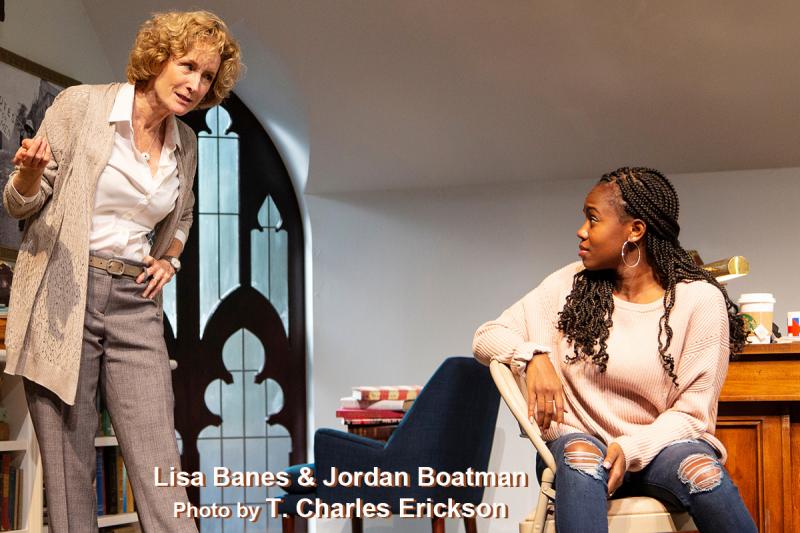 encouragement comes with tangible resources that help you move forward as an artist, that's really a lot of what you need to keep going and keep growing. Any time I've been able to make work I'm proud of, there's usually been an institution that said, "Yeah, try that! Would some time with actors help? Would a stipend help?" And GOD BLESS those institutions and the organizations that fund them.
encouragement comes with tangible resources that help you move forward as an artist, that's really a lot of what you need to keep going and keep growing. Any time I've been able to make work I'm proud of, there's usually been an institution that said, "Yeah, try that! Would some time with actors help? Would a stipend help?" And GOD BLESS those institutions and the organizations that fund them.
What inspired you to want to be a playwright?
There's no neat or easy answer to that. I always loved going to see theater whenever I had a chance as a kid and an adolescent. But I guess, I didn't realize it was actually a job people really did until I moved to London when I got out of college. Then I saw a lot of current, topical, and innovative plays, and realized that plays weren't just by dead Russians and Elizabethans. They were being made now, about our current world. And once I realized that, I just started writing.
Who would you deem as your writing idol or mentor?
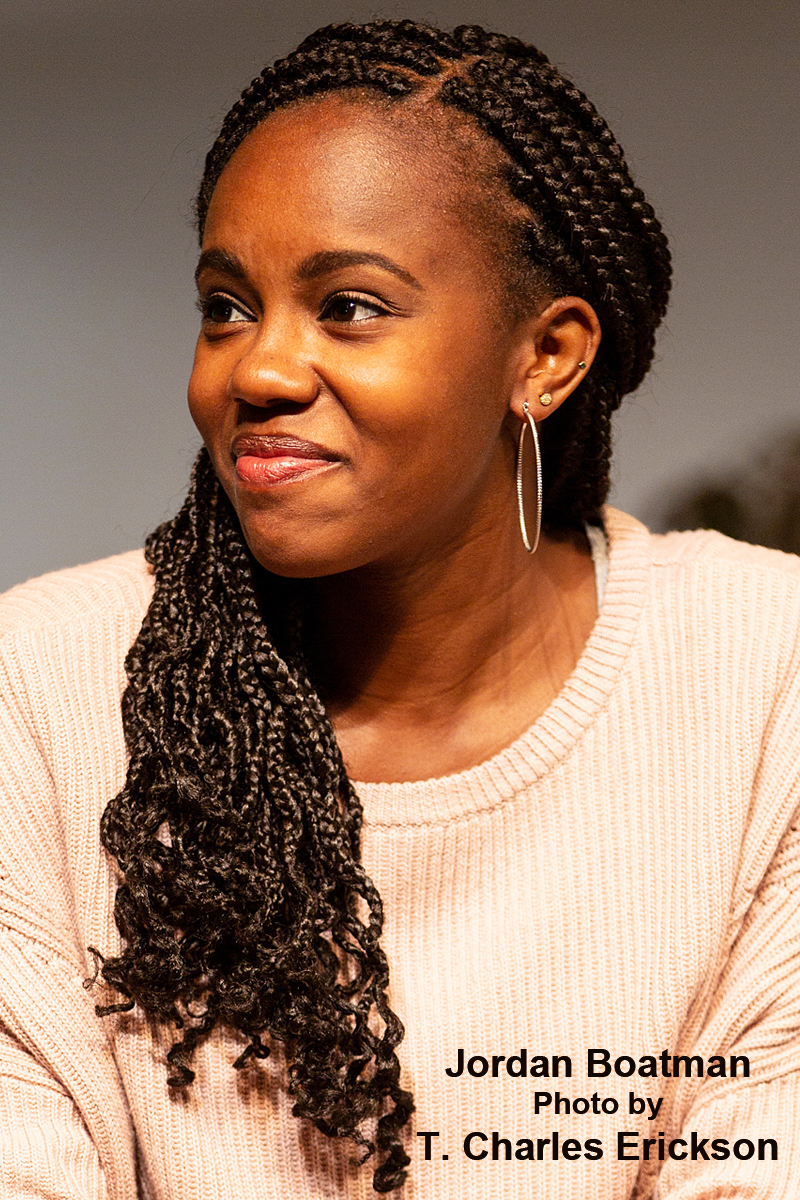 That's such a complicated question. I think to some degree, I try to avoid having an idol, because you have to have your own ideas about what a play is, and not be trying to do what someone else is doing. But there are any number of artists who have made me feel like "Yes, THIS is a play," and I go back to their plays again and again. Tom Stoppard, Annie Baker, Caryl Churchill, Quiara Algeria Hudes, Kirsten Greenidge, Wendy Wasserstein, Howard Barker, Mike Bartlett, Anne Washburn, just to name a very few of the many. So I guess, a lot of mostly British men and American women? I don't know what that's about.
That's such a complicated question. I think to some degree, I try to avoid having an idol, because you have to have your own ideas about what a play is, and not be trying to do what someone else is doing. But there are any number of artists who have made me feel like "Yes, THIS is a play," and I go back to their plays again and again. Tom Stoppard, Annie Baker, Caryl Churchill, Quiara Algeria Hudes, Kirsten Greenidge, Wendy Wasserstein, Howard Barker, Mike Bartlett, Anne Washburn, just to name a very few of the many. So I guess, a lot of mostly British men and American women? I don't know what that's about.
With all your work being produced, how involved are you in the casting of your plays? Only premieres?
I'm mostly involved with premieres or developmental productions where I'll be an active participant in the rehearsal room - where the actors aren't only performers, they're also collaborators who teach you about your script. With subsequent productions, I'm always happy to talk with a theatre or a director about what I think are the most important considerations in casting a particular character (and I have a few hard-and-fast rules about what can and can't be changed). But I think, most theatres know their own communities best, including the available pool of actors in their city. You want every production to really belong to the director, and the theatre that's doing it, and the city it's happening in. One of the beauties of theatre is it's not all supposed to be the same from show to show.
At what point are your scripts 'set in stone'? After a few try-outs with audiences? After a world premiere?
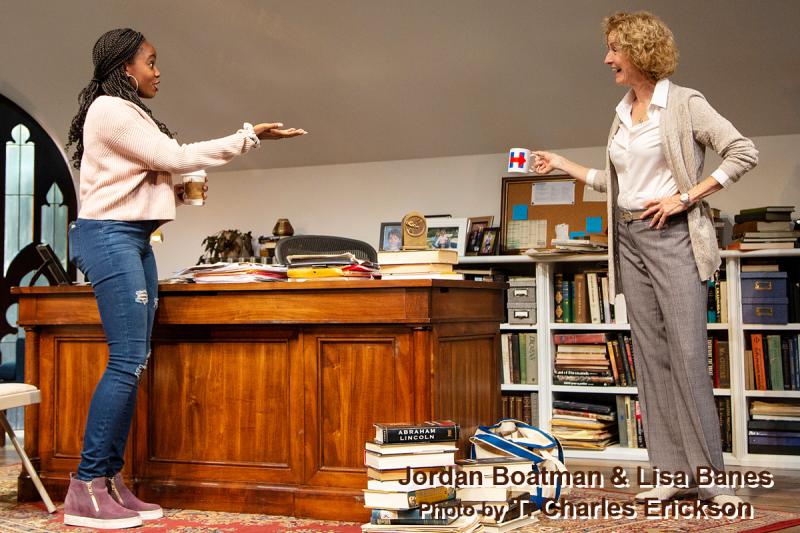 Ha, ha, ha! That is a funny topic because I just locked the script for THE NICETIES - after five productions. It doesn't always take that long! (I think I locked the script of CHILL a month after the first production closed?) But I do find that some really crucial revisions often happen after a world premiere, during a second production. It's become very popular to talk about theatre's culture of over-development (and when development is divorced from production, that can indeed be very damaging) but I also think we tend to forget that a lot of the canonical American plays were extensively re-crafted in production: out of town tryouts in one-two cities, dozens and dozens of Broadway previews. The idea that you can write a play, have three weeks of rehearsals and one week of previews, premiere it, and be done is a little wild. As a playwright, you are trying to do this Sheherazade-like thing where you make an audience forget things like time and legroom and the self, because they're so wrapped up in your story. That's a heady undertaking and it may take a lot of tinkering to get it right.
Ha, ha, ha! That is a funny topic because I just locked the script for THE NICETIES - after five productions. It doesn't always take that long! (I think I locked the script of CHILL a month after the first production closed?) But I do find that some really crucial revisions often happen after a world premiere, during a second production. It's become very popular to talk about theatre's culture of over-development (and when development is divorced from production, that can indeed be very damaging) but I also think we tend to forget that a lot of the canonical American plays were extensively re-crafted in production: out of town tryouts in one-two cities, dozens and dozens of Broadway previews. The idea that you can write a play, have three weeks of rehearsals and one week of previews, premiere it, and be done is a little wild. As a playwright, you are trying to do this Sheherazade-like thing where you make an audience forget things like time and legroom and the self, because they're so wrapped up in your story. That's a heady undertaking and it may take a lot of tinkering to get it right.
Do your friends or colleagues see themselves as characters in your plays?
My characters are never directly based on one particular person. They definitely have elements of people I've met. I've had friends and family say, "I told you that!!" Or "That line was totally this person," or "I recognize some of that behavior." But I've never written a play based directly on events from my life, or a character based on one specific person I know, and I don't think I'd want to.
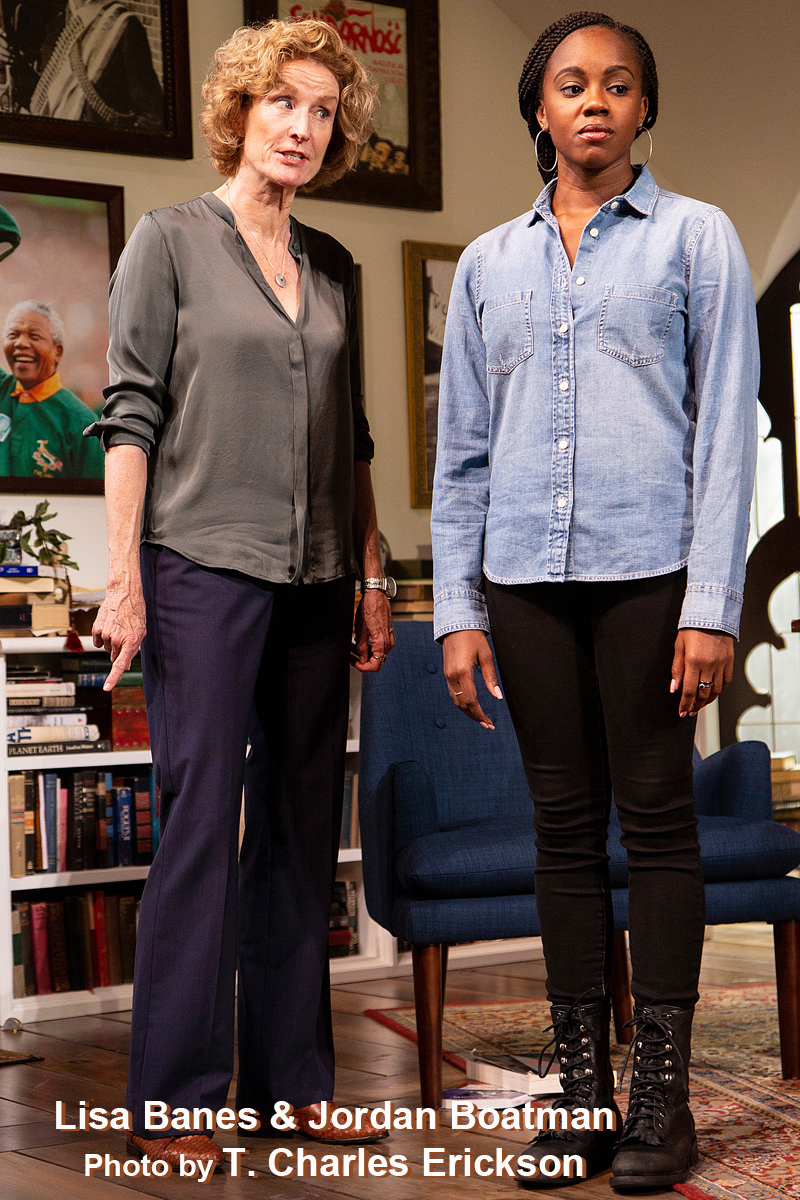 How cool is it that you have Lisa Banes, Jordan Boatman and Kimberly Senior of the Huntington Theatre Company production of last year reprising their participation at the Geffen?
How cool is it that you have Lisa Banes, Jordan Boatman and Kimberly Senior of the Huntington Theatre Company production of last year reprising their participation at the Geffen?
SO, SO, SO COOL! They're not just from the Huntington Production, they were in the co-world-premiere between the Huntington, Manhattan Theatre Club, and McCarter Theatre Center. It's a total delight for me to have them reprising their roles, since they are astonishing talents, and also three of the loveliest, kindest people one could work with. But even more, I'm so happy for audiences that get to see them do this play. It's very rare, these days, to see that level of performance - where the whole team just KNOWS every corner of a play and gets it and embodies it. Lisa, Jordan and Kimberly understand how this play works in some ways better than I do, and they make it everything it should be. I should add that our design team is also the full team from the original co-world-premiere - and, similarly, they understand the show so well that their work can add whole other dimensions that enhance and magnify the central story. I don't use this word often or lightly, but I feel blessed to have had a chance to spend almost a full year with these wonderful artists. That's rare in this job.
Any hint as to the subject of your next project?
Well, there are three different projects currently in the works, so I'll give three different hints: Cavemen. Housewives. And Jesus.
Thank you again, Eleanor! I look forward to seeing Lisa and Jordan match their NICE wits.
For ticket availability and show schedule through May 12, 2019; log onto www.geffenplayhouse.org
Comments

Videos
